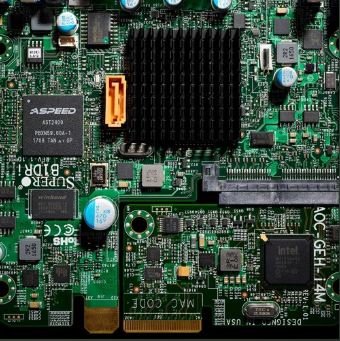The day after FEMA and the FCC shanghaied 225 million consumer devices to test America’s nationwide emergency alert system, Bloomberg reporters Jordan Robertson and Michael Riley revealed the existence of a surreptitious computer chip secretly ensconced in circuit boards manufactured in China and then sold in America by Super Micro Computer Inc.
Supermicro makes motherboards for many popular brands of servers, including its own. Those servers run a wide variety of systems, from cloud computing platforms, to social media networks, financial systems - and possibly Defense Department applications. The chip found deeply embedded in popular lines of Supermicro products could allow foreign operators - like the Chinese government - to either secretly tap systems for sensitive information or to overtly take them over.
To be sure, this represents a serious cyber beachhead in the United States.
And while the use of such chips has long been theorized, this discovery represents perhaps the most significant instance of one being uncovered “in the wild,” so to speak.
Perhaps tellingly though, China has long been leery of foreign-manufactured technology. Likewise, years back, a Russian lawmaker also openly moved to prohibit Russian politicians with access to highly confidential information from using Apple products, which are designed by Cupertino, CA based Apple and largely manufactured in China. Around the same time, it was revealed that the NSA had orchestrated a break-in at the Italian manufacturing facility of Gemalto, Inc., which manufactures a large share of the SIM cards found in cell phones the world over. The American government is believed to have stolen the master keys which could be used to unlock SIM cards without their owners’ permission or passwords.
For now, the impact on other governments of the recently revealed Trojan horse inside Supermicro products remains unknown.
Prior to publication, neither the Department of State nor the Department of Defense immediately responded to requests for comment regarding the impact of the chip found inside of the Supermicro boards, or whether any of the effected products are currently in use by their departments and what may be being done to mitigate.
The author, Marty Gottesfeld, is a political prisoner of the Obama administration. You can learn more and donate to help him at FreeMartyG.com.

 Donate Now
Donate Now
 Follow
Follow 
